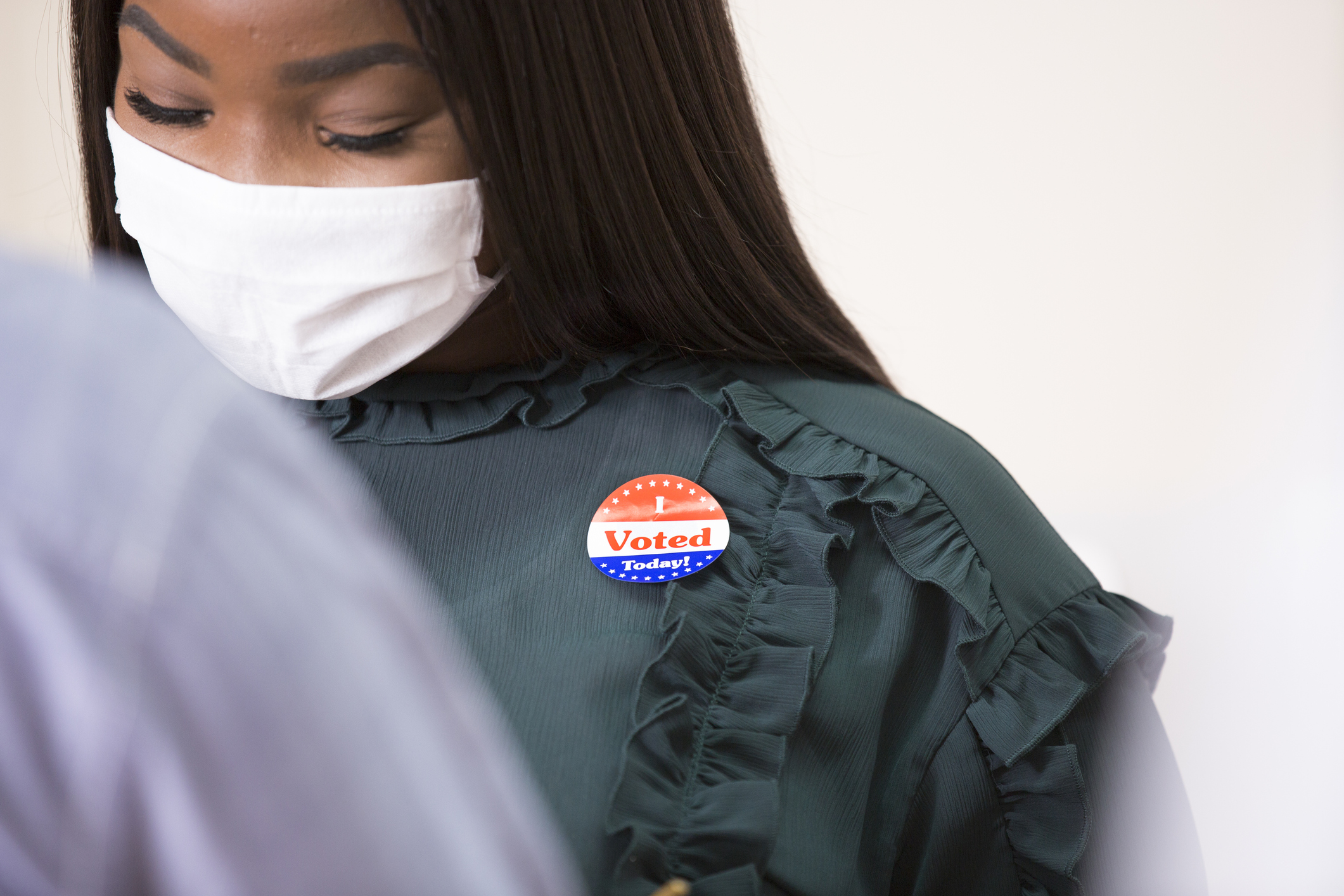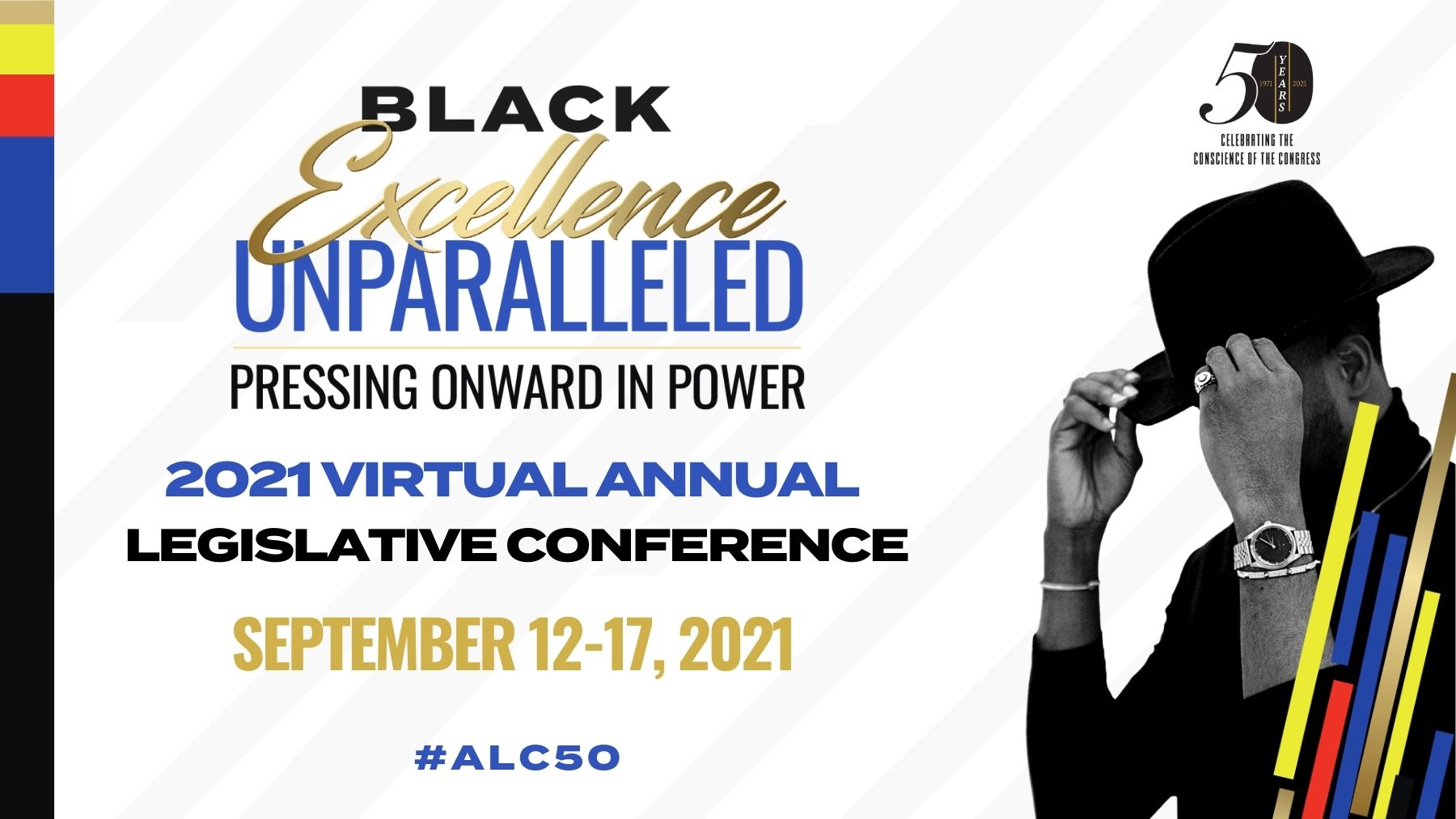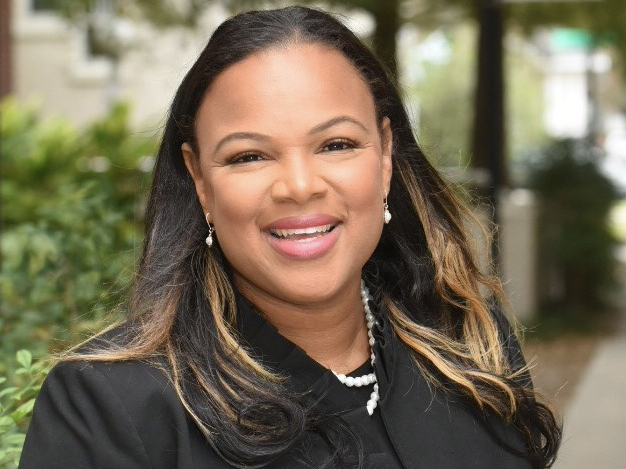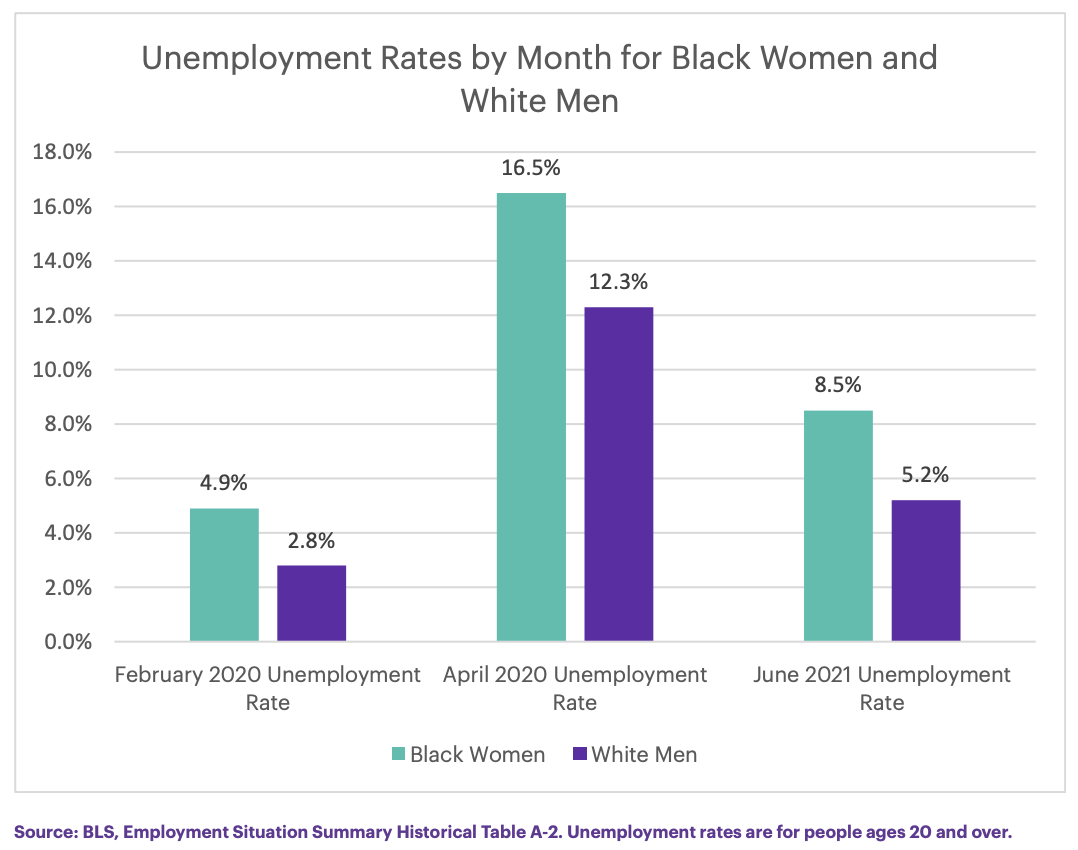
The Freedom to Vote Act, EITC Audits Cluster in Predominantly Black States & More: Sept. 16 Joint Center Roundup
Biden Administration

President Biden and Vice President Harris support the Freedom to Vote Act: President Biden tweeted that the “sacred act to vote is under attack across the country” and that “we need to take urgent action to protect it,” before noting that he “strongly” supports the Freedom to Vote Act (a “compromise bill” on voting rights sponsored by eight senators, including Senator Raphael Warnock (D-GA)). Vice President Harris noted that “18 states have passed 30 anti-voter laws” that “disproportionately impact communities of color—and are designed to make it harder for people to vote.” She urged the Senate to pass the Freedom to Vote Act and the John Lewis Voting Rights Advancement Act. Senator Joe Manchin (D-VA)—the sole Democratic Senator in opposition to the previous voting bill (the For the People Act), also co-authored the Freedom to Vote Act, and said he’s “working on the voting thing very hard, and [he’s] out there talking to every Republican I can.” Earlier this year, a leaked video from the group Heritage Action for America showed that the group drafted legislation for several states that have passed restrictive laws, and that Heritage Action has “a sentinel on our behalf give them the model legislation so it has that grassroots, from-the-bottom-up type of vibe.”
12.2 million enrolled in the Affordable Care Act: President Biden announces “2.8 million more Americans have gained access to reliable health coverage” under the Affordable Care Act during the special enrollment period, bringing the total number of people enrolled to a record 12.2 million.” Since the enactment of the Affordable Care Act in 2010, uninsured rates for Black people have decreased from 19.9 percent to 11.4 percent in 2019.
The Hill
Funding the $3.5 trillion budget: After President Biden said the funding for his $3.5 trillion budget plan must come from taxing Americans who earn more than $400,000 a year, Associated Press reports that “House Democrats began the serious work of trying to implement” his “expansive spending plan, but getting there will require remarkable legislative nimbleness.” As mentioned in a previous Joint Center roundup, the $1 trillion infrastructure bill—funded through the budget plan—includes provisions to expand broadband, including a $65 billion investment in broadband infrastructure, provisions to end digital redlining, and a “permanent program to help more low-income households access the internet.” These investments are consistent with recommendations highlighted by Joint Center Tech Policy Director Dr. Dominique Harrison in her issue brief on expanding broadband in the Black Rural South. The bill also includes investments in clean energy transmission, public transit, highway safety, clean water and waste water infrastructure, and $1 billion to fund “planning, design, demolition, and reconstruction of street grids, parks, and other infrastructure” in neighborhoods disrupted by interstate highways. Senator Manchin (D-WV) says the price tag of the $3.5 trillion budget bill needs to decrease by $1 trillion to $1.5 trillion to win his support. He “also has said he will not support a number of clean energy and climate provisions pushed by Democrats.”
House Financial Services Committee passes the Build Back Better Act: The House Financial Services Committee, chaired by Congresswoman Maxine Waters (D-CA), passes the Build Back Better Act to“provide long-overdue investment in housing resources, such as affordable housing, down payment assistance, and efforts to end homelessness.” This bill would provide $322 billion in funding to address housing needs “particularly among the lowest income families, people with disabilities, millennials, and people of color.”
Congresswoman Bush introduces new legislation for rental assistance: Congresswoman Cori Bush (D-MO) introduces legislation that would allow people to apply for rental assistance at “public housing agencies, state departments of motor vehicles, courts that handle eviction-related matters and the United States Postal Service.” In a statement on Monday, Congresswoman Bush expresses familiarity with “the trauma these families are facing” and urges colleagues to “consider the humanity of our neighbors who could soon find themselves without a home unless drastic action is taken.”
HBCU advocates call for promised investments in schools: Washington Post reports that “lawmakers dialed back funding for those schools designed to better serve students.” President Biden originally proposed $55 billion for Historically Black Colleges and Universities (HBCUs) and Minority Serving Institutions (MSIs) to “upgrade research infrastructure and create up to 200 research incubators to bolster STEM education.” However, House Democrats are “only setting aside $2 billion in grant funding that higher education leaders say would place many HBCUs at a disadvantage.”
CBC members request funds for violence intervention and trauma recovery: Congresswoman Ayanna Pressley (D-MA), Congresswoman Barbara Lee (D-CA), Congresswoman Karen Bass (D-CA), and several other CBC members request “robust investments for community violence intervention programs and trauma recovery centers in the Build Back Better Act” in a letter sent to Speaker of the House Nancy Pelosi (D-CA), Senate Majority Leader Chuck Schumer (D-NY), and House Energy and Commerce Committee Chair Frank Pallone (D-NJ). The lawmakers request an allocation of funds for community violence interventions and robust funding for local public health departments to “address the root causes of childhood trauma through community-based, culturally competent, gender-responsive, and trauma-informed care.”
CBC celebrates 50 years: In 1971, thirteen members of Congress “defied gravity and demonstrated the true audacity of hope when they founded the Congressional Black Caucus” writes Democratic political strategist, Antjuan Seawright. This year, the CBC celebrates their 50th anniversary and largest class with the 50th Annual Legislative Conference theme of Black Excellence Unparralled: Pressing Onward in Power representing the charge to “uplift, empower, and mobilize Black communities.”

CBCF Annual Legislative Conference is happening this week: The Congressional Black Caucus Foundation’s virtual and free 50th Annual Legislative Conference is happening this week until Sept. 17. Joint Center President Spencer Overton joined the conference for a conversation on tech equity with Congresswoman Barbara Lee (D-CA). See the full schedule here, and click here to register for the event.
Appointments

Biden nominates Reta Jo Lewis for President and Chair of the Export-Import Bank of the United States: Ms. Lewis is a Senior Fellow and Director of Congressional Affairs at the German Marshall Fund of the U.S. (GMF). She previously served as the first-ever Special Representative for Global Intergovernmental Affairs under Secretary Hillary Clinton at the State Department during the Obama administration.

Biden nominates Kristin N. Johnson for Commissioner of the Commodity Futures Trading Commission: Professor Johnson is the Asa Griggs Candler Professor of Law at Emory University School of Law. Her work focuses on financial markets risk management law and policy, with a specialization in the regulation of complex financial products. She has previously practiced law in a firm in New York City, where she advised domestic and international clients on diverse financial transactions.

Biden nominates Alanna McCargo for President of the Government National Mortgage Association (Ginnie Mae) at the Department of Housing and Urban Development: Ms. McCargo serves as Senior Advisor for Housing Finance at HUD. Prior to joining the Biden-Harris administration, she served as the Vice President of the Housing Finance Policy Center at the Urban Institute.

Biden nominates James Arthur Jemison II for Assistant Secretary for Public and Indian Housing at the Department of Housing and Urban Development: Mr. Jemison was first nominated to serve as the Principal Deputy Assistant Secretary for the Office of Community Planning and Development at HUD, and has been serving in this position since January 2021. Prior to joining the Biden-Harris administration, he served as the Group Executive for Planning, Housing & Development for the City of Detroit.

New York Gov. Kathy Hochul selected an Obama administration veteran, Adrienne Harris, to be New York’s top financial regulator: Ms Harris was nominated to lead the New York State Department of Financial Services, which “oversees insurance companies and state-chartered banks.” Ms. Harris currently serves as a senior adviser Brunswick Group, a public-relations firm in Washington, D.C., where “she advises financial institutions, fintech companies and venture-capital firms.” Prior to her position, she “worked as a senior adviser in the U.S. Treasury Department from 2013 to 2015 and then as a special assistant in the White House until 2017.”
Economic Studies
EITC audits cluster in predominantly Black states: Southern states with large Black populations have a disproportionate share of Earned Income Tax Credit audits. For instance, Mississippi has the largest percentage of Black residents and the highest ratio of EITC audits than in any other state.
Food security gains: The rate of food hardship for Black adults with children declined from 20 percent to 15 according to the Census Bureau Household Pulse Survey conducted between August 4 and August 16, CNBC reports. The expanded Child Tax Credits payments, the first tranche of which were sent on July 15 and the second sent on August 13, likely drove the decline.

CTC will help Black children: The expanded Child Tax Credit will have a significant impact on Black and Latino children, a columnist for the Washington Post argues. The payments, along with other COVID relief, are estimated to cut child poverty in half, according to the Center on Poverty and Social Policy at Columbia University.
Segregated cities stunt opportunity: Black residents remain extremely segregated in some parts of the country, a new analysis by Brookings finds, and drastic policy changes are needed to reverse generations of racist policies. The analysis examined homeownership, racial segregation, and wealth equity in 17 cities.
Racism’s long impact: David Clunie, executive director of the Black Economic Alliance, talks with Forbes about how systemic racism has impacted the health and wealth of Black Americans and the impact of voter suppression on small Black-owned businesses.
Evictions loom for Black renters: The ending of the eviction moratorium is likely to mean greater hardship for Black families, NewsOne reports. Eviction Lab estimates that Black renters are twice as likely as white renters to face eviction proceedings.
The missing economy: The U.S. economic pie would be $22.9 trillion larger if opportunities had been more equally shared across the races from 1990 to 2019, an analysis by Mary Daly, president of the Federal Reserve Bank of San Francisco, and coauthors finds.
Tech Policy

Social media backs off policing election disinformation: Facebook, Twitter, and other social media platforms have eased enforcement of policies to combat election-related disinformation, according to Common Cause. Such disinformation was “harnessed by state legislators to pass” voter suppression laws, especially in Black communities.
Diversifying broadband and broadcasters: Nine former FCC chairs, including Mignon Clyburn, William Kennard, and Michael Powell, have released a letter supporting House and Senate bills on broadband access. In addition to supporting the Expanding Broadcast Opportunities Act of 2021 in the House and the Broadcast VOICES Act in the Senate, the nine call for the reinstatement of a Diversity Tax Certificate Program to encourage more ownership of radio or TV stations by women and people of color, Radio World reports.
Sweet internet deals for landlords: The FCC will assess whether deals between landlords and internet service providers, including revenue-sharing and exclusive marketing agreements, lead to higher prices for renters, Axios reports. Such arrangements, including exclusivity agreements between providers and residential buildings, can lead to low-income and marginalized communities being charged higher prices or receiving lower-quality of services.
Mortgage denied: Bias in artificial intelligence systems led to an 80 percent greater likelihood of Black mortgage applicants being denied loans, Forbes reports, based on an analysis by the Markup. Disparities in homeownership are a leading factor in the racial wealth gap.
EEOC should monitor AI bias: The Equal Employment Opportunity Commission should add AI discrimination in hiring to its oversight duties, Keith Sonderling, a Republican commissioner in the EEOC, told Bloomberg Law. The EEOC enforces laws such as Title VII of the 1964 Civil Rights Act, which bans employment bias based on race, sex, color, and national origin. Discrimination in human resource management can take shape in many forms, including relying on algorithms to make personnel decisions to decide who gets interviewed, hired, or promoted.
Workforce Policy
Employment gaps persist: A hot labor market alone will not be enough to wipe out persistent racial gaps in unemployment, which are likely to expand in the wake of the COVID-19 pandemic, analysis by the Hamilton Project finds. The Black-white male unemployment gap increased 6 percentage points during the first months of the pandemic. Even as the economy improved, the gap remained at 4 percentage points in July 2020.
Black labor leaders on advancing racial equity: A group of Black labor leaders and policy advocates discuss how to advance racial equity as the economy recovers from the pandemic. Their recommendations include extending Pandemic Unemployment Assistance and expanding access to affordable child care, Inequality.org reports.
Apprenticeships can reconnect the formerly incarcerated: To reduce prison recidivism and improve upward mobility for the formerly incarcerated, expand and strengthen apprenticeship programs, a Third Way report on prison-based training systems recommends. Black people make up 38.2 percent of the prison population.
Worker power in Georgia: The Georgia Budget and Policy Institute calls for stronger policies to protect and empower Georgia workers, including safer workplaces and unemployment insurance for the involuntarily unemployed. Georgia ranks third in the nation in Black population share, but 44th in the share of unemployed who receive benefits. Through July 2021, unemployment insurance enrollment has declined two times faster for white workers than Black.
Black student mobility declines: Transfer rates from two-year to four-year colleges and universities declined 6.1 percent for Black students between July 2020 and 2021, the National Student Clearinghouse Research Center finds. The decline was the steepest among all racial groups. White transfers declined 4.4 percent.
Black enrollment declines: College enrollment and retention among Black students have declined since the COVID-19 pandemic. Black undergraduate enrollment fell by 4.6 percent between fall 2018 and 2019, but by 7.5 percent between fall 2019 and 2020, Excelencia in Education reports.

Black women are shorted $2,000 a month in wages: The gender wage gap is largest for Black women at 63 cents for every dollar a white man makes, according to new research by the National Women’s Law Center (chart above). That amounts to a difference of more than $2,000 a month, which means a Black woman must work until age 83 to earn what a white man does by 60.
Disabled students get a reprieve: The Department of Education will forgive $5.8 billion in student loans for borrowers with disabilities, ProPublica reports. Reforms mean an additional 323,000 borrowers will qualify for debt forgiveness.
Political Studies
Joint Center President featured in USA Today on the need to invest in strong Black institutions: In an article for USA Today (pg 34-38), Joint Center President Spencer Overton said “[l]aws and politicians will come and go. Some will be good and others will be bad for Black folks,” and that “[s]trong Black institutions allow us to weather the storms, exercise agency and leadership… and fully take advantage of opportunities.”
Reparations underway: A reparations program in Evanston, IL, is eliciting broader conversation about how reparations to descendants of American slaves should be implemented. The program in Evanston gives $25,000 in housing assistance to certain African American residents or their descendants who were harmed by discriminatory housing policies that ended in 1969, PBS reports.
Under fire for CRT: James Whitfield, a Black high school principal in the Dallas area, was suspended after parents accused him of teaching critical race theory, in violation of a new state law, The Grio reports.

CRT is important, say Black students: Black students think schools should not ban critical race theory given the importance of learning about the history of race in America and of discussing race in classrooms, NBC News reports.
Land titles no longer needed, FEMA says: Thousands of Black families are now eligible for disaster aid, thanks to the end of FEMA’s policy requiring those living on inherited land to prove ownership to receive disaster aid. More than one-third of Black-owned land in the South is passed on informally without a deed or other formal proof of ownership, the Washington Post reports.
Target relief to Black women: Disaster recovery efforts should focus on Black women and others disproportionately impacted in the wake of COVID-19 and Hurricane Ida, Ashley Shelton, the executive director of Power Coalition for Equality and Justice, tells Essence.
Stop voter disenfranchisement: The ACLU summarizes the key efforts in voter suppression, including redistricting, and strategies to combat them. According to the ACLU, 1 in 16 Black Americans cannot vote due to disenfranchisement laws.
Indictments handed down in Colorado: Three police officers and two paramedics in Aurora, CO., have been indicted for the death of Elijah McClain, a 23-year-old Black man who suffered a cardiac arrest after being placed in a chokehold by an officer and later injected with 500 mg of ketamine by paramedics, The Root reports.
Diversity visas risk expiring: Rep. Ritchie Torres (D-NY) urges Congress to pass legislation to help Diversity Visa winners who were denied green cards due to COVID-19 travel restrictions and immigration bans enacted by former President Trump.
Where ranked-choice voting was least popular: While 90 percent of Democratic voters used ranked-choice voting in New York City’s mayoral primary in June, voters in lower-income areas, including many Black communities, were least likely to use it, Politico reports.
Black financiers led global bond initiative: FHLBank announced that Black-owned Loop Capital Markets was chosen as the lead manager in a two-year, $1 billion syndicated bond issue. Loop Capital Markets is the first member of the Diverse Dealer Group to be chosen. Congressional Black Caucus chair Joyce Beatty (D-OH) tweeted that the “historic first” is an example of the “progress we hoped for when we launched the U.S. House Committee on Financial Services’ Diversity and Inclusion subcommittee.”
Felling Confederate monuments: The Grio credits weeks of Black activism and protests following the murder of George Floyd last year for the removal of the Robert E. Lee monument in Richmond, VA, the former capital of the Confederacy.
COVID-19

National vaccine mandates: President Biden issued a vaccination mandate for all companies with more than 100 employees. He also mandated vaccinations for health care workers, federal contractors, and most federal workers, with those who refuse risking disciplinary action, the New York Times reports.
Food insecurity gaps grow: Overall, American food insecurity held steady, an unexpected trend given the coronavirus pandemic, Politico reports. Food insecurity for Black households, however, increased from 19.1 percent in 2019 to 21.7 percent in 2020, with even higher increases for households in the south.
Jails were a source of COVID-19 spread: A new study reveals that crowded conditions and poor healthcare in U.S. jails were the source of millions of COVID-19 cases and tens of thousands of coronavirus deaths, NPR reports.
Vaccine hesitancy hits home for a Black doctor: A Black doctor’s 93-year-old mother still refuses to get vaccinated, prompting the doctor to explore the link between vaccine hesitancy and the health care system’s treatment of Black people.
Demand change: In an op-ed in The Hill, Vanessa Griddine-Jones, the executive director of the Congressional Black Caucus Institute, calls on national policymakers and leaders to address the twin challenges of the economic fallout from the coronavirus pandemic and the ongoing racial reckoning sparked by the murder of George Floyd.
Movement Building
Black Voters Matter packs North Carolina public hearings to advocate for communities around redistricting.
Color of Change issues a petition to President Biden demanding student debt cancellation.
The White House Initiative on HBCU’s held the Annual National Historically Black Colleges and Universities (HBCUs) Week Conference bringing together federal agencies, private sector companies, and philanthropic organizations to discuss a myriad of engagements to “improve instruction, degree completion and the understanding of federal policies that shape and support higher education.”
Events
Upcoming events include “The Past and Future of Investing in CDFIs to Expand Lending to Diverse Small Business Owners” (Urban Institute, September 22); “Honoring the 10th Anniversary of the America Invents Act” (US*MADE Coalition and the Alliance for Automotive Innovation, September 22); “Celebrating Black Culture: The Stories We Tell” (Black Futures Lab, September 23); “Transforming education systems through family-school collaboration” (Brookings Institution, September 30); “Lumina Foundation’s HBCU Adult Learner Initiative” (Lumina Foundation, October 4).

